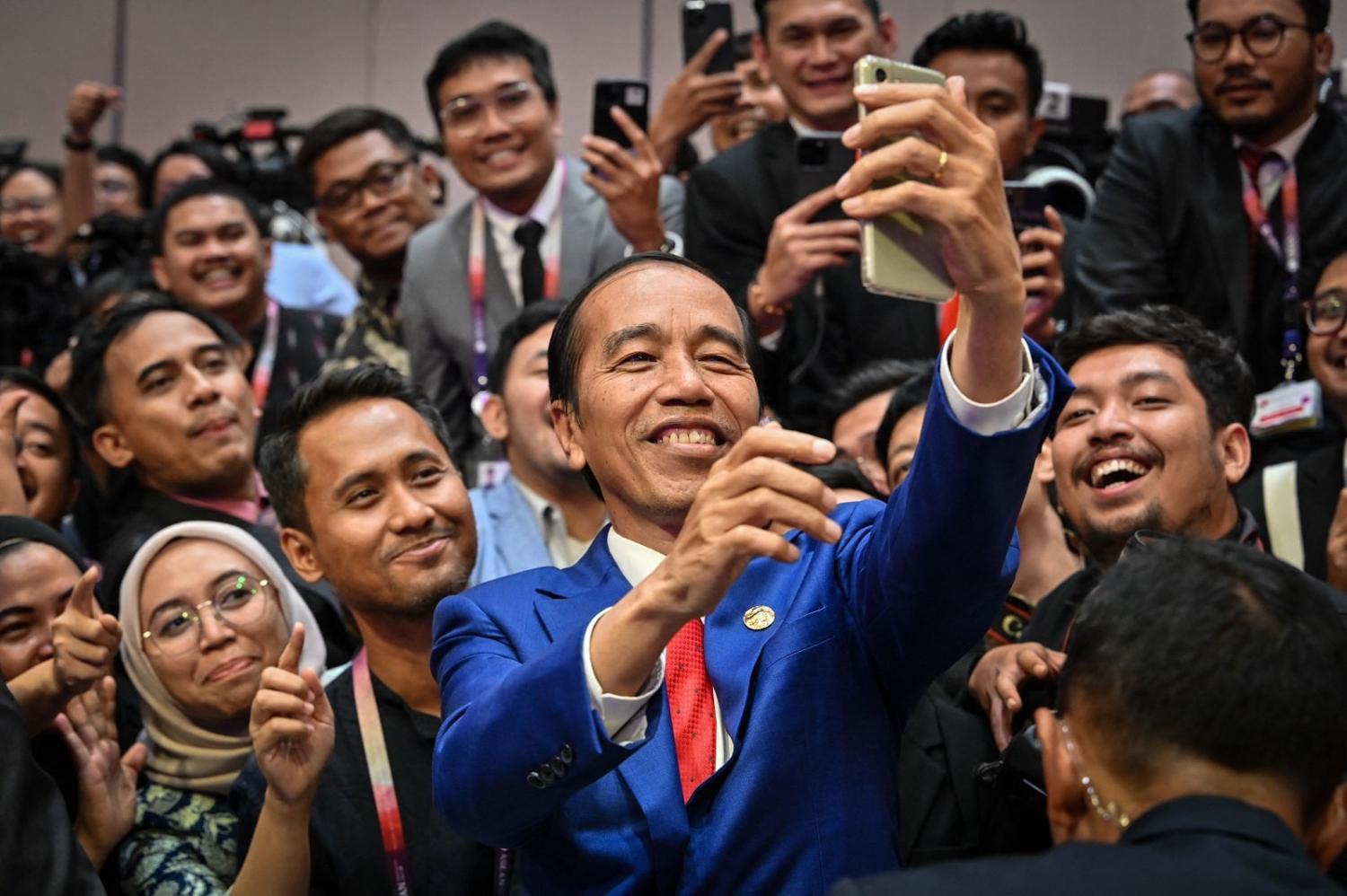President Joko Widodo recently unveiled Indonesia’s preliminary long-term development plan (RPJPN) of 2025–2045, which lays out the country’s grand ambition to attain a “Golden Indonesia” (Indonesia Emas) by 2045, when it celebrates its century of independence. Amplifying the leadership and influence of Indonesia on the global stage becomes a strategic aim under the plan.
This objective marks a stark departure from the previous long-term development plan of 2005–2025, which placed more emphasis on restoring and strengthening Indonesian democracy. Making direct reference to the notion of “influence”, the new objective denotes a more assertive Indonesia, seeking to hold greater sway over its strategic environment.
Such ambition is undoubtedly fuelled by Indonesia’s recent successes in leading key global and regional initiatives, from the G20 to the Association of Southeast Asian Nations (ASEAN). No wonder the Lowy Institute’s 2023 Asia Power Index, officially used in the RPJPN as a performance indicator, ranks Indonesia ninth among 28 Asian countries in terms of influence, sandwiched just between Singapore and Thailand.
But what is still missing from Indonesia’s approach? The answer lies in an appreciation for and incorporation of culture as a source of influence. Indonesia needs a more comprehensive strategy on how to leverage its soft power to advance its geostrategic clout.
Indeed, as illustrated in the Power Index, Indonesia still lags in several indicators of power, most notably in terms of military capability, defence networks and cultural influence, where Indonesia falls below the top ten.
Yet, while many observers note that the Defence Ministry under presidential hopeful Prabowo Subianto has taken notable initiatives to tackle lags on military capability and defence networks, a concrete strategy to enhance Indonesia’s cultural influence and harness its soft power potential remains to be seen.

Coined by Joseph Nye, soft power refers to the capacity to shape the preferences of others without resorting to coercion or hard power. It stems from a country’s cultural attractiveness, the universality of its political values, and the moral legitimacy of its foreign policies.
Japan, South Korea, Singapore, even Thailand have fared much better than Indonesia in this respect. In the Global Soft Power Index 2023, they all sit above Indonesia, which sits in 45th place. Much remains to be learnt about how these countries manage their soft power potential.
Take neighbouring Thailand, for example. Through government-led gastro-diplomacy initiatives, the country has successfully boosted the presence of Thai restaurants overseas from around 5,000 in the early 2000s to 15,000 by 2018, according to one study. A recent report by the Pew Research Center shows that Thai restaurants make up 11 per cent of all Asian restaurants in the United States – the third most common after Chinese and Japanese. Export of Thai agricultural products and tourism have increased accordingly. These have helped boost Thailand’s cultural influence.
To incorporate soft power into Indonesia’s geostrategic projection, a change of paradigm by its policymakers is a necessity. A conventional paradigm conceives Indonesia’s main source of strength as lying in numbers: population, natural resources, or territory. Defence Minister Prabowo Subianto exemplifies such a view – as evident in his most recent book Paradoks Indonesia.
Mainstreaming soft power as a policy paradigm requires Indonesian policymakers to start seeing its pristine nature, biodiversity, culture and human talent as the primary capital of geostrategic influence.
Learning from Thailand’s experience, for instance, Indonesia should design a comprehensive policy to help its culinary heritage go global. Such policy would reinforce existing initiatives by civil society actors and the Indonesian diaspora to promote Indonesian culinary heritage (like tempeh) abroad and provide incentives for those wishing to partake in such endeavours.
While Indonesia has recently launched the “Indonesia Spice Up the World” program to help promote local food and restaurants abroad, it remains to be seen whether it will end up merely as a slogan or fall prey to sectoral egos among the agencies involved, for which the Indonesian government is infamous.
In addition, learning from India’s success in tapping into its global diaspora as a source of soft power, Indonesia needs to conceive its human capital development strategy within the context of an inter-connected world. Accordingly, programs designed to provide opportunities for Indonesians to pursue higher education abroad, such as the National Endowment Fund for Education (LPDP), should not be inward oriented. Instead, Indonesia must aim to produce a globally competitive diaspora of talent that can channel external opportunities to their homeland and help lift Indonesia’s image.
These are just two examples of policies to amplify Indonesia’s soft power and geostrategic profile. What Indonesia really needs is top-level leadership that can transcend conventional geostrategic thinking and have the courage to put such initiatives into effect.

